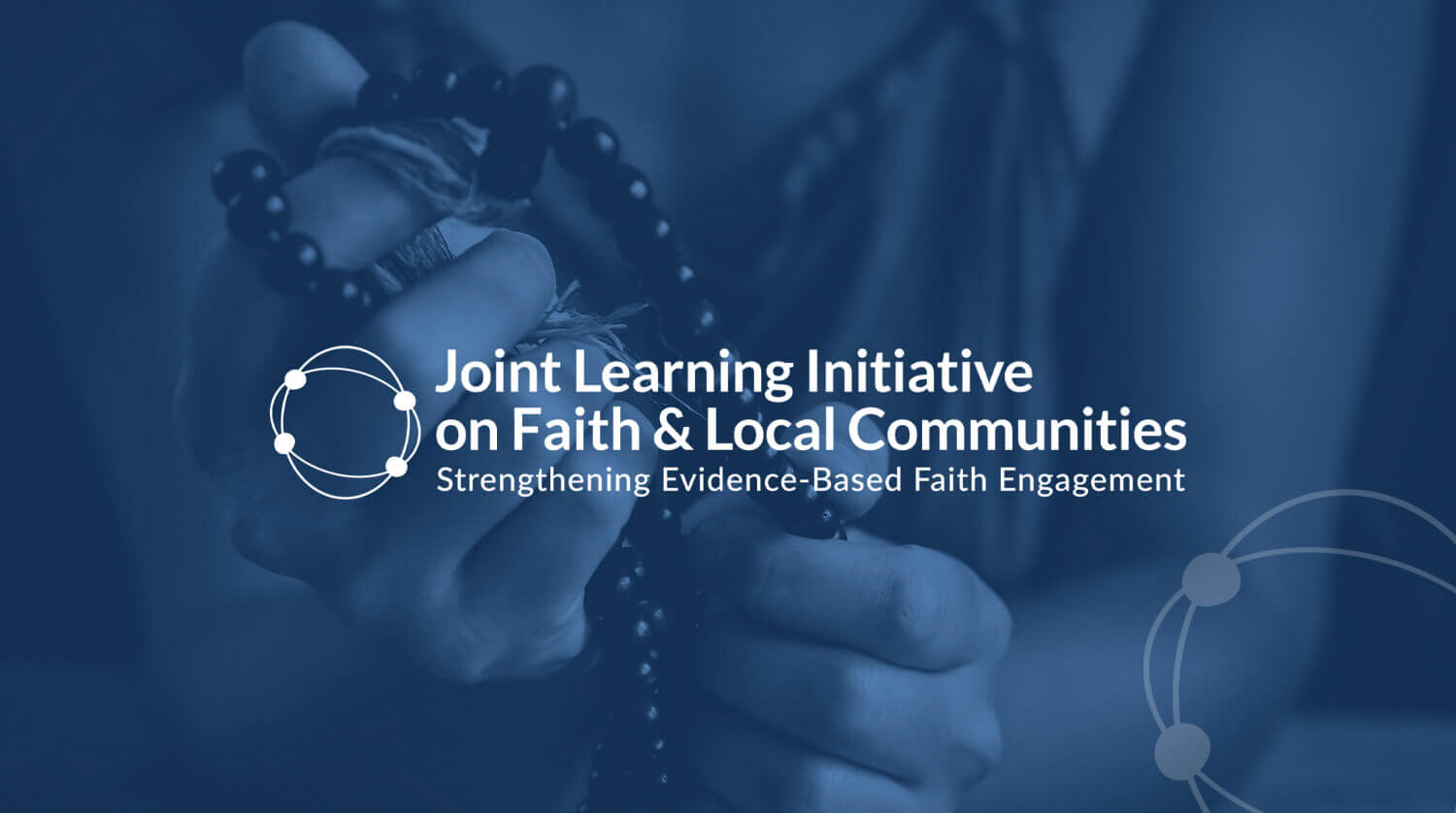JLI Joint Learning Opportunity: Webinar on Local Humanitarian Leadership – hosted by the JLI Refugee Hub and Mobilisation of Local Faith Communities Hub
October 3
Local Humanitarian Leadership and Faith
Guest Presenter: Tara Gingerich – Oxfam America
Moderator: Catriona Dejean – Tearfund (JLI Mobilisation of Local Faith Communities Learning Hub co-chair)
Local humanitarian leadership is built upon the premise that humanitarian action should be led by local humanitarian actors whenever possible, yet this research finds that secular humanitarian INGOs do not engage systematically with local faith actors in their local leadership work. Based primarily on interviews with humanitarian INGO staff, this research also found that neither secular nor faith-inspired international humanitarian organizations have a sufficient level of religious literacy to enable them to understand the religious dimensions of the contexts in which they work and to effectively navigate their engagement with local faith actors.
Webinar included the following discussion on local humanitarian leadership and religious literacy.
Response from Catriona Dejean
- Faith-inspired vs faith- embedded organizations – for some FBOs faith is at the DNA of who and how they work, so it is beyond inspiration
- Role of relationships: trust between local faith communities and secular organizations are critical especially during humanitarian events (ie good examples in Myanmar, Middle East)
- It is important to not only look at the structures, processes and tools for engaging with faith communties, but also to understand what enables good and open relationships.
- Attitudes and behaviors on engagement across faiths and non-faith groups could be explored further.
- What makes a response effective with local faith communities? The report stated no real difference between secular and faith actors. Could it be because we have different definitions of effective? For example some faith organizations and actors are interested in holistic changes so effectiveness may be framed beyond the tangible or traditional definition of effectiveness.
From other attendees:
- Role of faith-based organizations as intermediaries
- There seems to be some dissonance between the responses reported in the research (from HQ) and the situation on the ground, where FBOs face a lot of pressure. There might be an openness to the recommendations stemming from the research such as designing a religious literacy toolkit, but there will need to be a true dialogue on a practitioner level and real socialization.
- Suggestions for secular organizations seeking to discuss topics with faith-based actors for which they have different understandings. How can these conversations happen most productively? Practicality of engaging with local faith actors
- On alignment (or not) with local faith groups and how to deal with issues – the Oxfam recommendation to develop tools to help truly assess religion/culture/historical influences on the target group in a humanitarian response is vital. That should help tease out more clearly what the actual or perceived differences are. Ultimately though, as was said, if a local faith community (or any partner of any kind) isn’t able to or doesn’t desire to ‘align’ with humanitarian principles – INGOs needs to decide whether the partnership can continue. We have to deal with our issues too of course!
- If the whole community believes in one specific religion, it’s simple, but if it’s divided into some religious groups, it can become sensitive. The literacy should cover this aspect as well.
- About LFAs impartiality, neutrality,& proselytising: how often does this happen vs how often do people on the international level worry about this occuring?
- Forthcoming article called ‘“Faith can come in, but not religion.” Secularity and its effects on the disaster response to Typhoon Haiyan.’ that deals with impartiality and some of the hypocrisy.
- See Katie Kraft’s article in the ICRC journal on impartiality and proselytization.
- The basic idea is that religion manifests in Faith-based NGOs in different ways, such as their names, missions, activities, goals, modes of expression, membership or employment criteria, institutional origins, or the identity of populations they serve, and invisibility is their greatest asset. That is, Faith-based NGOs are most effective in private coalitions and when they do not engage in explicitly religious terms.
- See also American Academy of Religions recent book: Religion, NGOs and the UN
- Important to dig into ‘instrumentalism’
- The JLI Refugee hub will be releasing it’s first scoping study on Urban Displacement, Refugees & Forced Migration and the Role of Faith Actors soon.
- The Mobilisation of Local Faith Communities Hub will have a webinar coming up in December
- On Oct 16-19, a relevant conference co-hosted by the JLI will occur in Sri Lanka on Localizing the response to Humanitarian Need: The Role of Religious and Faith-based organizations
see lrf2017.org






